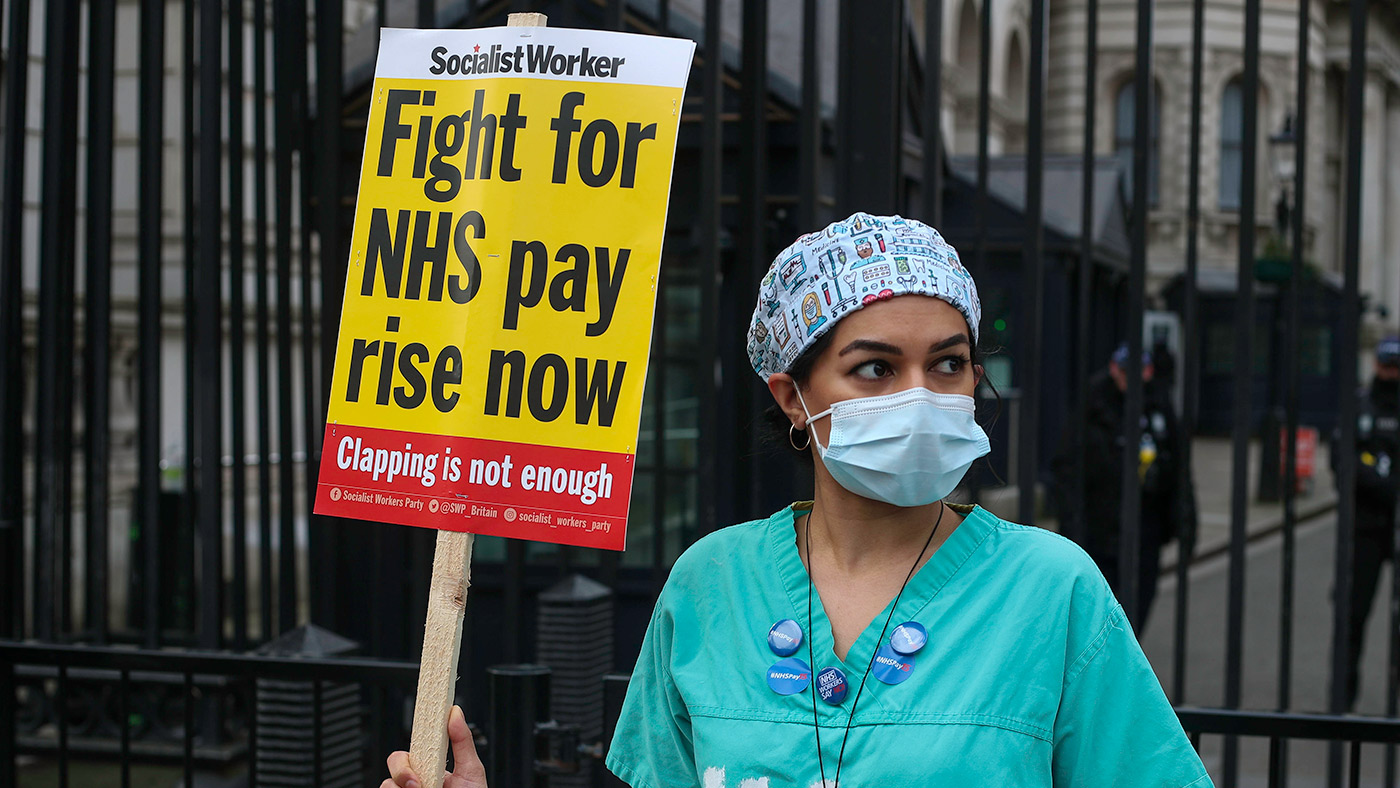Is this the end of austerity?
Government public sector pay rise labelled ‘derisory’ amid fears it could be funded by further cuts

A free daily email with the biggest news stories of the day – and the best features from TheWeek.com
You are now subscribed
Your newsletter sign-up was successful
Unions have condemned the government’s much-vaunted public sector pay rises as “derisory” amid fears extra money for workers will mean government cuts in other areas.
A million public sector workers received their first pay increase above 1% since 2013, when the pay cap replaced a complete pay freeze brought in in 2010 by the then-chancellor George Osborne as part of the Coalition’s austerity programme.
Teachers, prison officers, members of the armed forces, doctors and dentists will be given rises of between 1 and 4%, backdated to April, the start of the financial year.
The Week
Escape your echo chamber. Get the facts behind the news, plus analysis from multiple perspectives.

Sign up for The Week's Free Newsletters
From our morning news briefing to a weekly Good News Newsletter, get the best of The Week delivered directly to your inbox.
From our morning news briefing to a weekly Good News Newsletter, get the best of The Week delivered directly to your inbox.
Reuters says the announcement, which was rushed through before Parliament’s summer recess began, was an attempt by Theresa May “to regain momentum after a rocky few weeks of Brexit drama”.
But The Times reports that there is no new money coming from the Treasury to fund the rises, “meaning that the relevant departments will fund them from within their existing budgets”.
This has led to fears that other government services or jobs could be cut to fund the pay rises.
Unions have widely condemned the pay increase, pointing out that some of the consolidated figures, which don’t include bonuses and perks, are below the current 2.4% rate of inflation.
A free daily email with the biggest news stories of the day – and the best features from TheWeek.com
The Police Federation said officers’ pay had fallen by about 18% since 2009-10 and the rise would be just £2.50 a week extra for a constable at the start of their career.
The federation’s vice-chair, Che Donald, said: “Today’s derisory announcement flies in the face of a lot of hot air spouted by the Home Office and government over the past few months. In reality this pay award is an insult to those who serve day in, day out.”
The British Medical Association (BMA) expressed similar sentiments, while Christina McAnea, assistant general secretary at the Unison union, telling The Guardian: “Behind the good news headlines, the government is simply robbing Peter to pay Paul”.
It comes as a Resolution Foundation report revealed millions of families are worse off than they were 15 years ago.
Research has indicted that low-income families are actually earning £100 less a year today than they were in 2003, even with figures adjusted for inflation and housing costs.
“The remarkable income stagnation for so many reveals that the economy has been failing to generate income for people over many years despite record levels of people in work” says the BBC’s economics editor Kamal Ahmed.
-
 The Week Unwrapped: Do the Freemasons have too much sway in the police force?
The Week Unwrapped: Do the Freemasons have too much sway in the police force?Podcast Plus, what does the growing popularity of prediction markets mean for the future? And why are UK film and TV workers struggling?
-
 Properties of the week: pretty thatched cottages
Properties of the week: pretty thatched cottagesThe Week Recommends Featuring homes in West Sussex, Dorset and Suffolk
-
 The week’s best photos
The week’s best photosIn Pictures An explosive meal, a carnival of joy, and more
-
 The RAAC concrete crisis: fears spread to hospitals, homes and theatres
The RAAC concrete crisis: fears spread to hospitals, homes and theatresfeature Experts call for tens of thousands of buildings to undergo safety checks as crumbling schools scandal escalates
-
 National nursing strike: should the patient ‘always come first’?
National nursing strike: should the patient ‘always come first’?Talking Point Recent YouGov poll found that 65% of public approves of strike action
-
 Home Office worker accused of spiking mistress’s drink with abortion drug
Home Office worker accused of spiking mistress’s drink with abortion drugSpeed Read Darren Burke had failed to convince his girlfriend to terminate pregnancy
-
 In hock to Moscow: exploring Germany’s woeful energy policy
In hock to Moscow: exploring Germany’s woeful energy policySpeed Read Don’t expect Berlin to wean itself off Russian gas any time soon
-
 Were Covid restrictions dropped too soon?
Were Covid restrictions dropped too soon?Speed Read ‘Living with Covid’ is already proving problematic – just look at the travel chaos this week
-
 Inclusive Britain: a new strategy for tackling racism in the UK
Inclusive Britain: a new strategy for tackling racism in the UKSpeed Read Government has revealed action plan setting out 74 steps that ministers will take
-
 Sandy Hook families vs. Remington: a small victory over the gunmakers
Sandy Hook families vs. Remington: a small victory over the gunmakersSpeed Read Last week the families settled a lawsuit for $73m against the manufacturer
-
 Farmers vs. walkers: the battle over ‘Britain’s green and pleasant land’
Farmers vs. walkers: the battle over ‘Britain’s green and pleasant land’Speed Read Updated Countryside Code tells farmers: ‘be nice, say hello, share the space’